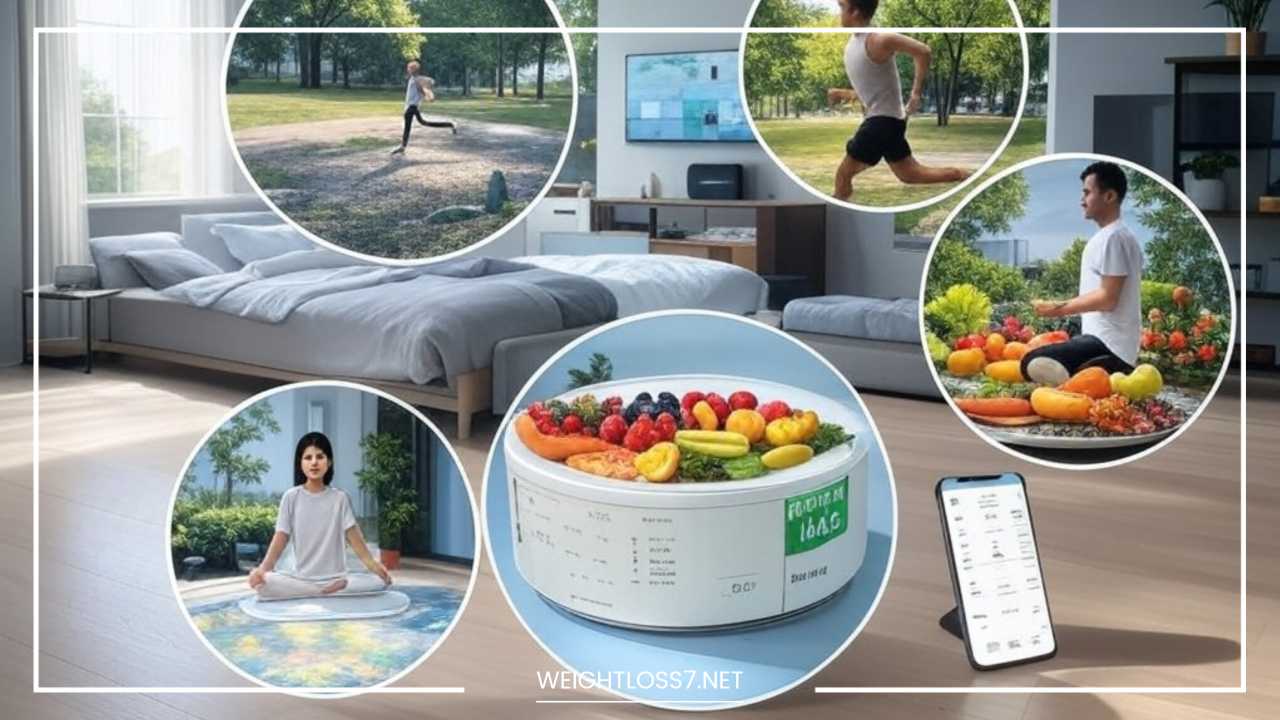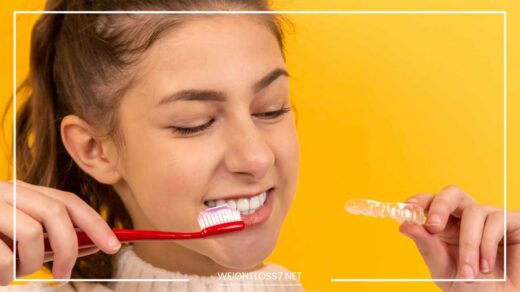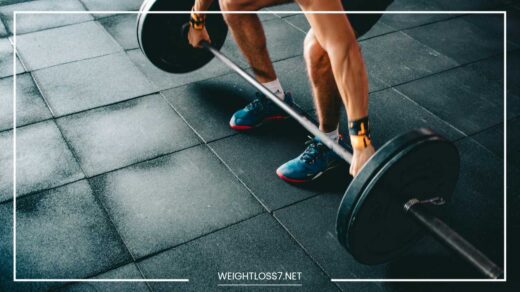How to Treat Adult ADHD Without Medication

Treat Adult ADHD Without Medication
How to Treat Adult ADHD Without Medication: A Comprehensive Guide
Adult Attention Deficit Hyperactivity Disorder (ADHD) is a neurodevelopmental condition that can significantly affect various aspects of life, including work, relationships, and overall well-being.
Many adults with ADHD seek alternatives to medication to manage their symptoms more effectively. While medication can be beneficial for some, non-medication strategies—ranging from lifestyle modifications to therapeutic techniques—can be equally powerful in managing the disorder and improving quality of life.
This guide explores a wide variety of non-medication methods that can help adults with ADHD thrive and regain control over their lives.
Understanding Adult ADHD
ADHD is characterized by persistent patterns of inattention, hyperactivity, and impulsivity that interfere with daily functioning.
In adults, the symptoms are often more subtle compared to children, but they still present significant challenges.
These challenges can impact work performance, relationships, social interactions, and even mental health, leading to low self-esteem, stress, and frustration.
Some of the common symptoms of adult ADHD include:
- Inattention: Adults with ADHD often struggle to focus on tasks, are easily distracted, forget important details, and experience difficulty in organizing tasks and following through with them. This leads to missed deadlines, forgotten appointments, and disorganization in both personal and professional settings.
- Hyperactivity: While hyperactivity in adults may not be as overt as in children, it can manifest as feelings of restlessness, difficulty relaxing, or constant need for movement. Individuals with ADHD may fidget, pace, or have trouble sitting still in meetings or during social gatherings.
- Impulsivity: Impulsivity can take the form of impatience, difficulty waiting one’s turn, making hasty decisions without fully considering the consequences, or interrupting others during conversations. This may lead to risky behaviors, such as reckless driving or spontaneous spending, and relationship difficulties.
While these symptoms can interfere with various life domains, many adults with ADHD are unaware of their condition or fail to recognize the underlying causes of their struggles.
However, understanding ADHD and its unique manifestations in adults is an important first step toward effectively managing it without relying on medication.
Non-Medication Strategies for Managing Adult ADHD
There is a range of non-medication strategies available for managing ADHD, including lifestyle changes, behavioral modifications, therapeutic approaches, and the use of assistive technologies.
These strategies can help reduce the symptoms of ADHD and enhance overall functioning. Below, we will explore each of these strategies in detail.
1. Lifestyle Modifications
Prioritize Sleep
Sleep is crucial for emotional regulation, cognitive functioning, and overall well-being, especially for individuals with ADHD.
Many adults with ADHD experience difficulty falling asleep, staying asleep, or maintaining a consistent sleep schedule.
Chronic sleep deprivation can exacerbate ADHD symptoms such as inattention, irritability, and impulsivity. Therefore, prioritizing quality sleep is essential.
Adults with ADHD should aim for 7-9 hours of sleep per night. To improve sleep quality, try the following:
- Establish a Consistent Sleep Schedule: Go to bed and wake up at the same time each day, even on weekends. This helps regulate your internal clock and improves sleep quality.
- Create a Relaxing Bedtime Routine: Engage in calming activities before bed, such as reading, meditating, or taking a warm bath, to signal to your body that it’s time to wind down.
- Optimize Your Sleep Environment: Keep the bedroom cool, dark, and quiet. Consider using earplugs or a white noise machine if you’re sensitive to sound, and invest in a comfortable mattress and pillows.
Embrace Exercise
Physical activity is one of the most effective ways to manage ADHD symptoms. Regular exercise has been shown to improve focus, reduce impulsivity, and enhance mood.
Physical activity increases the production of dopamine, a neurotransmitter that plays a key role in attention and motivation. Exercise also reduces stress and helps regulate sleep patterns.
To integrate exercise into your daily routine, consider these tips:
- Choose Enjoyable Activities: Find activities that you enjoy, whether it’s walking, running, swimming, dancing, or playing sports. This increases the likelihood that you’ll stick with your exercise routine.
- Make Exercise a Daily Habit: Aim for at least 30 minutes of moderate-intensity exercise most days of the week. You can break this up into shorter sessions if needed—three 10-minute sessions, for example, still provide benefits.
- Combine Exercise with Social Interaction: Join a fitness group or team sport to combine physical activity with social interaction, helping to keep you motivated and engaged.
Nourish Your Body
The food you eat plays an essential role in brain health and the management of ADHD symptoms.
A balanced, nutrient-rich diet can help stabilize blood sugar levels, improve focus, and reduce irritability.
Adults with ADHD may benefit from foods that promote cognitive function, including:
- Whole Foods: Incorporate a variety of fruits, vegetables, lean proteins, and whole grains into your diet. These foods provide essential vitamins and minerals that support brain health and energy levels.
- Omega-3 Fatty Acids: Research suggests that omega-3s, found in fatty fish like salmon, walnuts, and flaxseeds, may improve attention and reduce hyperactivity.
- Limit Processed Foods: Minimize consumption of processed foods, sugary snacks, and artificial additives, which can exacerbate ADHD symptoms by causing energy crashes, mood swings, and difficulty concentrating.
Limit Caffeine and Alcohol
While caffeine may provide a temporary boost in focus, excessive intake can worsen symptoms over time, leading to jitteriness, anxiety, and difficulty sleeping. Similarly, alcohol can impair cognitive function and exacerbate impulsivity.
Moderating or eliminating these substances can help regulate attention and mood. Consider tracking how caffeine and alcohol affect your symptoms and adjust your intake accordingly.
Practice Mindfulness
Mindfulness practices such as meditation, yoga, and deep breathing exercises are valuable tools for managing ADHD symptoms.
These practices help increase self-awareness, reduce stress, and improve emotional regulation. By learning to focus on the present moment, you can train your brain to become more attuned to your thoughts, feelings, and physical sensations.
Start incorporating mindfulness into your routine by:
- Meditating for 5-10 Minutes a Day: Even brief mindfulness sessions can help improve focus and reduce stress. Use guided meditation apps such as Headspace or Calm to get started.
- Practicing Deep Breathing Exercises: Take slow, deep breaths to calm your nervous system and improve concentration. Try breathing techniques like the 4-7-8 method to relax your body and mind.
2. Behavioral Techniques
Structure and Routine
Establishing structure and routine is vital for managing ADHD symptoms. A predictable schedule helps individuals with ADHD stay on track and reduce feelings of overwhelm.
Creating daily routines for work, meals, exercise, and personal time can provide the necessary structure to help stay organized and focused.
Practical strategies for improving structure include:
- Daily Planning: Create a to-do list or planner every morning, outlining your tasks and priorities for the day. Break larger tasks into smaller, manageable steps.
- Use Visual Cues: Visual reminders such as sticky notes, whiteboards, or digital apps can help keep tasks visible and reinforce accountability.
- Set Regular Routines: Establish consistent times for waking up, eating, exercising, and going to bed. Routine helps the brain stay organized and focused.
Time Management Strategies
Time management is a common challenge for adults with ADHD. However, using proven time-management techniques can significantly improve productivity. Here are a few effective strategies:
- The Pomodoro Technique: Work in short bursts of 25 minutes, followed by a 5-minute break. After four work sessions, take a longer 20-30 minute break. This method improves focus and prevents burnout.
- Time Blocking: Block off specific time periods for specific tasks, and focus exclusively on one task during that time. This helps prevent distractions and procrastination.
- Set Time Limits for Tasks: Allocate a set amount of time for each task and try to complete it within that timeframe. This prevents tasks from dragging on and helps you stay on schedule.
Organizational Skills
Keeping your environment organized is crucial for managing ADHD symptoms. A cluttered space can lead to distractions, forgetfulness, and a sense of overwhelm.
By developing organizational systems for your physical and digital spaces, you can improve your focus and productivity.
Consider these tips to enhance your organizational skills:
- Declutter Regularly: Set aside time each week to clean and declutter your living or work space. This will reduce distractions and make it easier to find what you need.
- Use Organizational Tools: Use filing cabinets, binders, and labeling systems to keep physical documents organized. Digital tools like cloud storage and note-taking apps can help keep your digital files organized.
- Create Designated Spaces: Assign specific areas for important items such as keys, phone chargers, and documents. This reduces the likelihood of misplacing things and minimizes distractions.
Impulse Control Strategies
Impulse control is a key challenge for individuals with ADHD. However, there are techniques that can help improve self-regulation and reduce impulsive behaviors.
Try the following strategies:
- Pause Before Acting: When faced with a decision, take a moment to pause and reflect on the potential consequences before acting.
- Identify Triggers: Pay attention to situations that provoke impulsivity—whether it’s stress, fatigue, or boredom—and develop healthier coping strategies to manage these moments.
- Practice Self-Compassion: Be kind to yourself when mistakes happen. Recognize that everyone has moments of impulsivity, but it’s the willingness to learn and adjust that fosters growth.
Goal Setting and Prioritization
Goal setting is a powerful tool for adults with ADHD, as it provides direction and motivation. However, it’s important to set realistic and achievable goals that align with your values. Use the following techniques to make goal-setting more effective:
- Break Goals into Smaller Steps: Large, vague goals can feel overwhelming. Break them down into smaller, actionable steps to make them more achievable.
- Prioritize Tasks: Use tools like the Eisenhower Matrix (urgent vs. important) to prioritize tasks. Focus on the most important tasks first to prevent procrastination.
- Track Progress: Regularly review your goals and track your progress. Celebrate small victories along the way to maintain motivation.
3. Therapeutic Approaches
Cognitive Behavioral Therapy (CBT)
Cognitive Behavioral Therapy (CBT) is one of the most effective therapies for adults with ADHD. CBT focuses on identifying and changing negative thought patterns and behaviors that contribute to ADHD symptoms.
By learning how to reframe unhelpful thoughts and develop coping strategies, individuals can improve their emotional regulation, problem-solving, and overall functioning.
CBT has been shown to improve focus, reduce impulsivity, and enhance emotional resilience in individuals with ADHD. Through structured therapy sessions, you can develop personalized tools for managing everyday challenges.
Dialectical Behavior Therapy (DBT)
Dialectical Behavior Therapy (DBT) is another effective therapeutic approach for ADHD, especially for individuals who experience emotional dysregulation.
DBT focuses on teaching skills for mindfulness, emotional regulation, and interpersonal effectiveness. For individuals with ADHD who struggle with impulsivity and emotional volatility, DBT can help foster better self-awareness and self-control.
Executive Function Coaching
Executive function coaching focuses on helping individuals with ADHD develop the skills necessary for managing daily tasks and responsibilities.
Coaches provide personalized strategies for improving organization, time management, and planning.
Executive function coaches help clients learn how to break down tasks, set achievable goals, and stay on track.
4. Assistive Technologies
Time Management Apps
Time management apps, such as Trello, Todoist, or Google Calendar, help individuals with ADHD organize their tasks and schedules.
These apps often come with features like reminders, deadlines, and prioritization tools to help you stay on track.
Focus and Productivity Apps
Apps like Freedom, Focus@Will, or RescueTime can block distractions, track time spent on tasks, and provide background music to enhance focus.
These apps can be particularly helpful when working on complex tasks or in environments with multiple distractions.
Note-Taking and Organization Apps
Digital tools such as Evernote or OneNote can help you organize notes, track projects, and keep important information at your fingertips.
These apps allow you to capture thoughts on the go, organize files, and reduce the mental clutter that can result from disorganization.
Final Thoughts
Managing adult ADHD without medication is possible and can be incredibly effective when incorporating a variety of strategies into your life.
By focusing on lifestyle modifications, using behavioral techniques, exploring therapeutic approaches, and taking advantage of assistive technologies, you can develop practical solutions for managing ADHD symptoms.
Whether it’s prioritizing sleep, practicing mindfulness, or seeking support through therapy, there are numerous pathways to improving your quality of life and living a fulfilled life with ADHD.
While managing ADHD without medication requires effort and persistence, the key lies in finding strategies that work best for you and sticking with them.
By being patient with yourself and regularly evaluating your progress, you can successfully navigate the challenges of ADHD and unlock your potential.

















